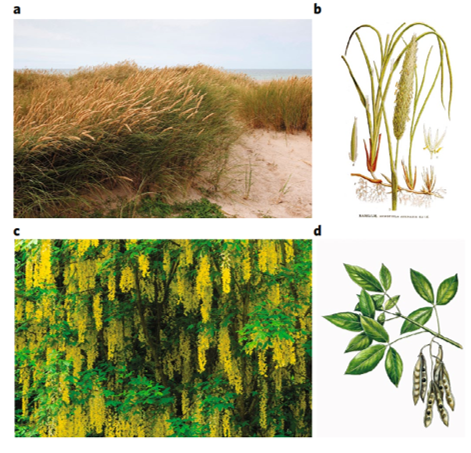
Review: A CRISPR way for accelerating improvement of food crops (Nature Food)
Blog, Plant Science Research WeeklyCRISPR technologyhas become indispensable for basic plant biology research and has the potential to profoundly impact future agriculture. Zhang et al. provide an overview of CRISPR technology and discuss how this technology will revolutionize future crop breeding. CRISPR technology can not only introduce…
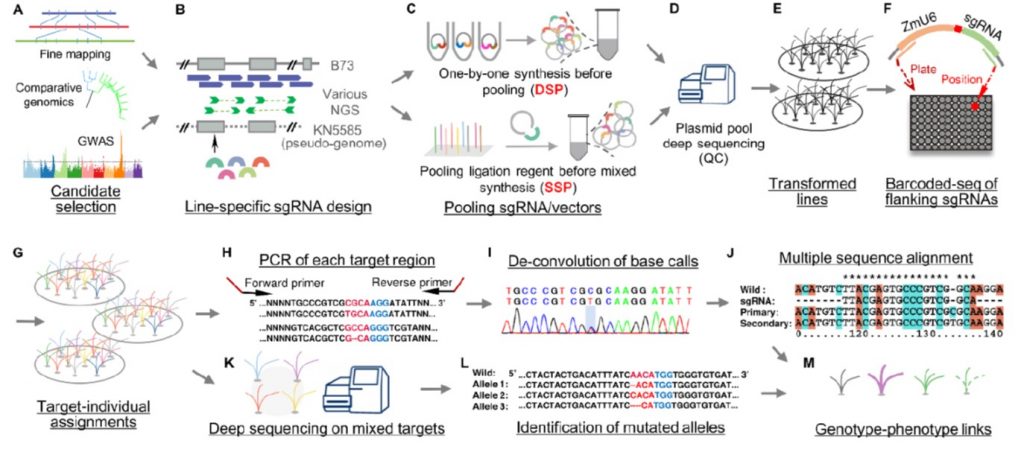
High-throughput CRISPR/Cas9 mutagenesis streamlines trait gene identification in maize (Plant Cell)
Plant Science Research WeeklyMaize has provided some fascinating mutants and developmental insights, but its genomic complexity has made it more difficult (for example as compared to rice) to identify agronomically important genes. Liu et al. describe a new high-throughput method to integrate forward- and reverse-genetics to identify…
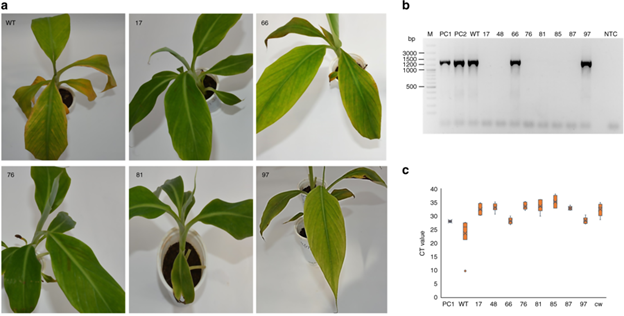
Using CRISPR/Cas9 editing to inactivate an endogenous virus impacting bananas (Commun. Biol.)
Plant Science Research WeeklyBanana streak virus (BSV) is a plant pathogenic pararetrovirus that has integrated into the genome of banana Musa spp., reducing crop production. When BSV-infected banana plants become stressed, BSV reactivates to create functional infectious viruses that can cause lethal tissue necrosis. Tripathi et…

High-frequency random DNA insertions upon co-delivery of CRISPR-Cas9 ribonucleoprotein and selectable marker plasmid in rice (Sci Reports)
Plant Science Research WeeklyGenome editing through CRISPR/Cas9 holds so much promise for plant breeders, including potentially the ability to overcome the public’s displeasure with conventional GMOs. Still, the gene-editing RNAs and enzymes must get into the plant cell in order to work. Banakar et al. have compared three methods…
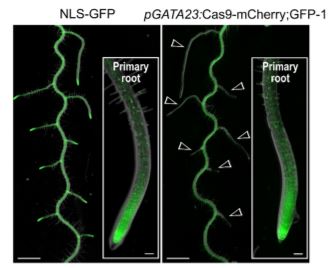
Introducing CRISPR-TSKO: A Breakthrough in Precision Gene Editing
Research, The Plant Cell, The Plant Cell: In BriefAn excellent way to explore the function of a gene is to knockout its expression and see what happens. The development of the targeted gene editing system CRISPR (clustered regularly interspaced short palindromic repeats) has triggered scores of gene knockout studies. CRISPR is based on a defense system…

Tissue-specific Gene Elimination in Plants
Research, The Plant Cell, The Plant Cell: In a NutshellDecaestecker and Buono et al. develop a system for tissue-specific gene knockout to enable phenotypic analysis of context-specific gene function.
Plant Cell https://doi.org/10.1105/tpc.19.00454
By Ward Decaestecker, Rafael Andrade Buono, Moritz Nowack and Thomas Jacobs
Background: As plant molecular…
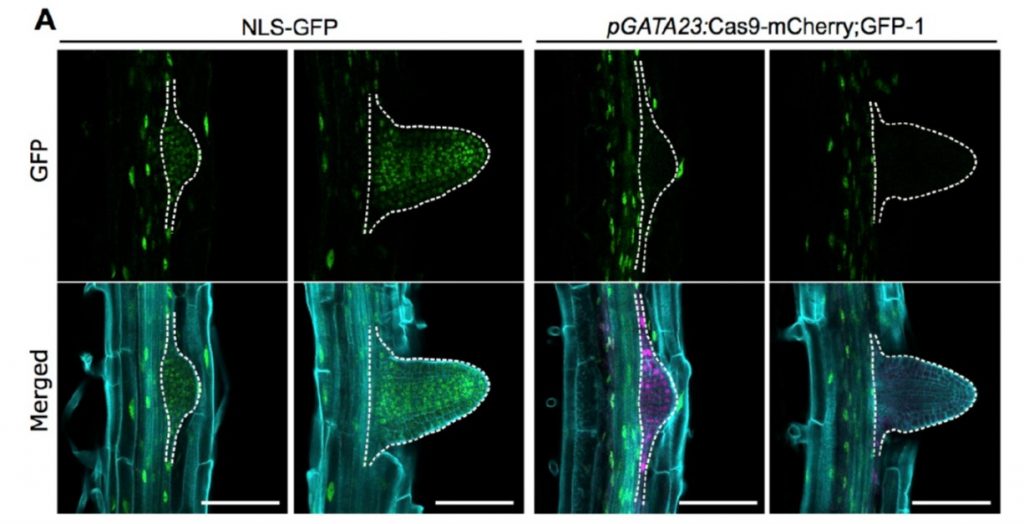
CRISPR-TSKO: A technique for efficient mutagenesis in specific cell types, tissues, or organs in Arabidopsis ($) (Plant Cell)
Plant Science Research WeeklyThe ability to introduce base-specific changes through CRISPR/Cas9 gene editing has given scientists fantastic tools with which to understand and modify the genes that control plant development and physiology. New tools and refinements to this toolkit are being developed rapidly. In this new work, Decaestecker…

Linking CRISPR-Cas9 interference in cassava to the evolution of editing-resistant geminiviruses (Genome Biol)
Plant Science Research WeeklyCRISPR/Cas9 is a promising gene editing tool that has already been successfully used to modify many plant genes. In these applications, the gene editing machinery is transiently employed to make a stable genomic change which is then passed on to the progeny. A different application is to use CRISPR/Cas9…
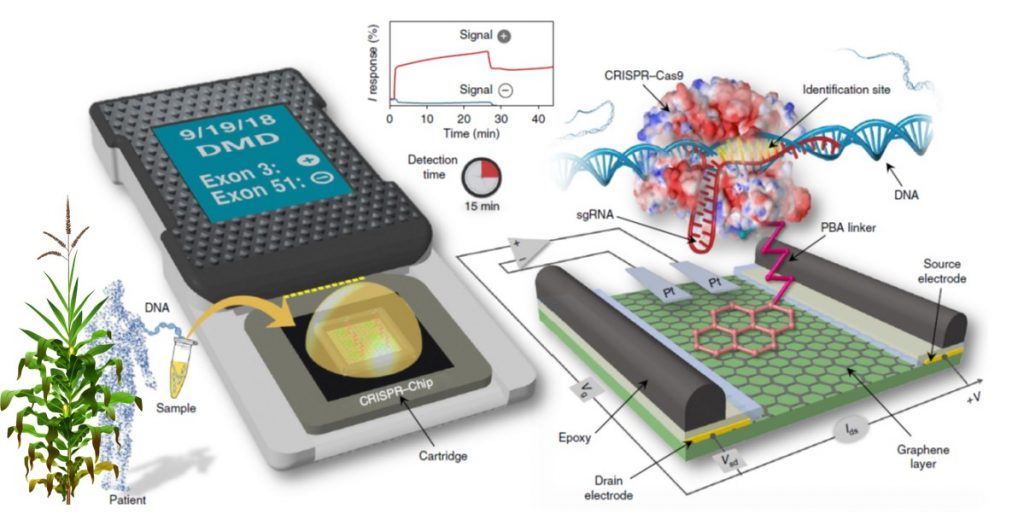
CRISPR-Chip: Detection of gene variants in unamplified DNA using graphene field-effect transistors ($) Nature Biomed Engineering
Plant Science Research WeeklyCRISPR-Chip combines the selectivity of CRISPR-Cas gene recognition with the sensitivity of a graphene-based field-effect transistor. It contains an immobilized complex of catalytically deactivated Cas9/CRISPR and an appropriate guide strand attached to a graphene surface. When this complex recognizes…

